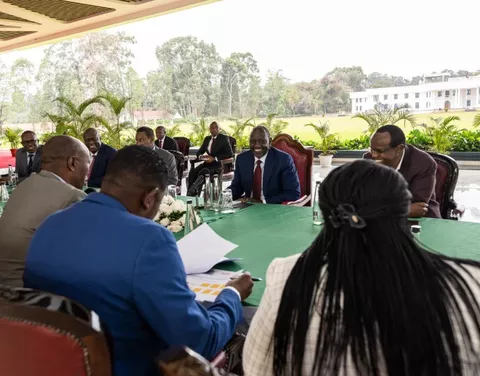President William Ruto has assured Kenya’s textile and apparel sector that the government is working urgently to secure a renewal or extension of the African Growth and Opportunity Act (AGOA), following its expiry at the end of September 2025. The move comes as thousands of apparel workers face job losses and factories worry about operating under new tariff pressures.
What’s At Stake
Jobs: Over 66,000 Kenyans are employed directly in the apparel export sector tied to AGOA, and many more depend on these jobs through indirect work.
Export value: Kenya has been among the top apparel exporters under AGOA; in 2024, apparel exports to the U.S. were worth hundreds of millions of dollars.
Tariffs: With AGOA’s expiry, Kenyan goods may lose duty-free or low-tariff access to the U.S., exposing them to foreign competition and increasing costs. The U.S. has already imposed a 10% tariff on some Kenyan goods that formerly enjoyed zero duty under the agreement.
What Ruto Is Doing
He met with textile industry representatives at State House to discuss urgent plans.
Ruto reported that in conversations with U.S. Secretary of State Marco Rubio, Kenya pushed not just for a temporary AGOA extension, but for a long-term framework that gives Kenyan manufacturers stable and predictable market access.
He reassured stakeholders that operations in the industry should continue without severe disruption while talks with U.S. authorities process
Challenges Ahead
AGOA now being expired means urgent risk of job losses, especially in EPZs (Export Processing Zones) that depend heavily on U.S. demand.
Tariff changes and loss of preferential access could erode competitiveness for Kenyan exporters versus countries still operating under favorable trade terms.
Other operational costs (energy, raw materials, transport, customs) also squeeze margins for apparel firms. Without relief or mitigation, some may downsize or shut down.


You must be logged in to post a comment.